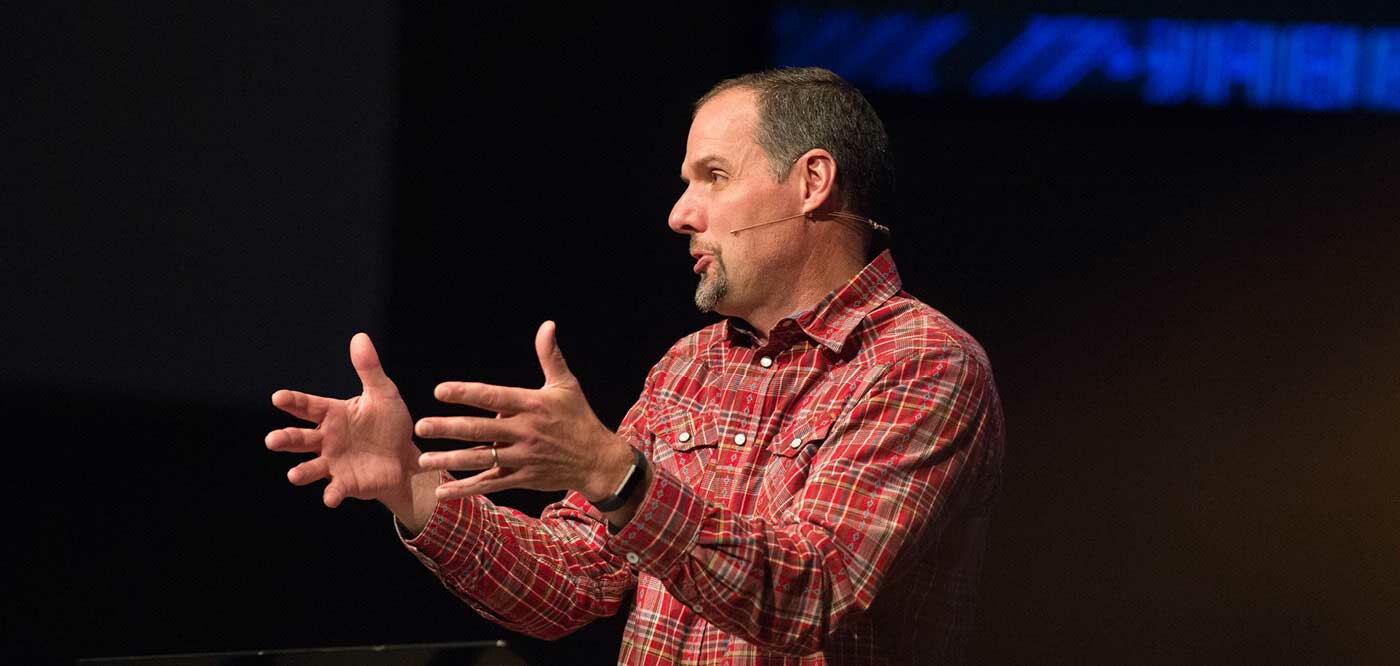
Question from Tough Question sermon series:
How can we reconcile the Bible describing slavery and saying to obey your master with God loving/creating all people?
The description of slavery in the biblical narrative is a prominent objection to Christianity. I don’t know the motive of this questioner, but there are at least three issues embedded in this question that I will address:
- the Bible describes slavery
- the Bible does command slaves to “submit” to their masters
- the Bible describes all people as being made in God’s image
THE BIBLE DESCRIBES SLAVERY
When I studied in Jerusalem, one of my professors emphasized the need to make a distinction between what the Bible “describes” and what it “prescribes” or “proscribes.”[1] Just because the Bible narrates an event does not mean it gives moral credence to the behavior. Biblical authors will often describe an event to illustrate moral decline and humanity’s fallen nature. So, the desire to cry foul when reading certain narratives is an appropriate response and often the reaction the biblical author wants the reader to have. The Bible’s description of slavery does not mean that it gives a stamp of approval to injustice, in fact quite the opposite.
THE BIBLE’S COMMANDS TO SLAVES
But I suspect that the tension this questioner feels arises out of New Testament commands to slaves or bondservants (Gr. doulos). Here are a few of those passages:
Bondservants (Gr. doulos), obey your earthly masters (Gr. kuriois) with fear and trembling, with a sincere heart, as you would Christ (Ephesians 6:5 ESV).
Were you a bondservant when called? Do not be concerned about it. (But if you can gain your freedom, avail yourself of the opportunity.) (1 Cor 7:21 ESV).
“Servants (Gr. oiketai), be subject to your masters (Gr. despotais) with all respect, not only to the good and gentle but also to the unjust” (1 Peter 2:18 ESV).
As with any text, we need to ask a basic interpretive question: what is the author’s intent? Let’s consider Ephesians 6:5 by way of example. I can see how someone reading this verse could conclude that the Bible condones or even approves of slavery.[2] But this is where we need to slow down and consider this verse within its literary and historical context. Paul introduces Ephesians 4-6 with, “Therefore I, a prisoner of the Lord, exhort you to walk worthily of the calling in which you were called” (Ephesians 4:1 My Translation). This statement marks a section devoted to practical exhortation—what it looks like to walk in a Christian manner.[3] What follows is a command to live out the implications of the gospel in every aspect of life. Understanding Paul’s goal in this section is key to understanding Ephesians 6:5-9. Paul wants the Ephesian “bondservants” to work with sincerity as an act of worship (vv. 5-8). Masters are to “do the same” and to “stop your threatening” (v. 9 ESV). Paul’s goal in these verses is not to abolish a system that was ubiquitous throughout the Roman Empire; his goal is to show how his gospel presentation in Ephesians 1-3 transforms every aspect of life. But Paul’s vision of the bondservant/master relationship was so countercultural that it would ultimately lead to the unraveling of slavery. Regarding Paul’s comments on slavery in Galatians, Frank Thielman says, “Such a radical redefinition of the relationship between master and slave removes the brutality and dehumanizing aspects of Roman chattel slavery, and with these aspects removed, the institution’s demise, at least in Christian circles, awaits only the consistent application of Paul’s radical social vision to be complete.”[4]
IMAGE BEARING IN THE NEW CREATION
God creates every human being “in his own image” (Gen 1:27). This is what makes us unique from the rest of creation. By implication, slavery is counter to the creation mandate (Gen 1:26-27). Yes, slavery is acknowledged in both the Old Testament and New Testament, but the overall trajectory of the Bible is freedom (Is 58:6).[5] In this sense it could be said that the Bible is radically anti-slavery. The prophets paint the picture of a renewed creation—a creation where God dwells with humanity (Rev 22) and a world where the interpersonal relationships of image bearers who have faith in Jesus are restored (Rev 21:1-4). This is the ultimate resolution of the biblical storyline. We live in a world where slavery remains a horrendous reality in many parts of the world. But the Bible sounds an enduring hope, a hope that has already begun for those who have responded in faith to Jesus (Gal 3:26-28). In Jesus, new creation has in some sense already burst onto the stage even as we await the day when “the former things” will finally and ultimately pass away (Rev 21:4 ESV), injustice will be no more, and God will dwell with his people (Rev 22:3).
[1] A special thank you to Paul Wright, former president of Jerusalem University College, for pointing out this distinction.
[2] Dan Nässelqvist and Georgina Jardim, “Slavery,” in The Lexham Bible Dictionary (Bellingham, WA: Lexham Press, 2016).
[3] Andrew T. Lincoln, Ephesians, Word Biblical Commentary, vol. 42 (Dallas: Word, Incorporated, 1990), 226-227.
[4] Frank Thielman, Theology of the New Testament: A Canonical and Synthetic Approach (Grand Rapids: Zondervan, 2005), 392.
[5] Miroslav Volf and Ryan McAnnally-Linz, The Home of God: A Brief Story of Everything (Grand Rapids: Brazos Press, 2022), 48-49.
Brazos Press, 2022), 48-49.
About the Author
Tucker Anderson
Tucker Anderson has served at Calvary Church since 2015. He is a graduate of Bethel Seminary and The Southern Baptist Theological Seminary. His passion is helping people develop a biblical worldview by understanding the relationship between the Old Testament and New Testament.




